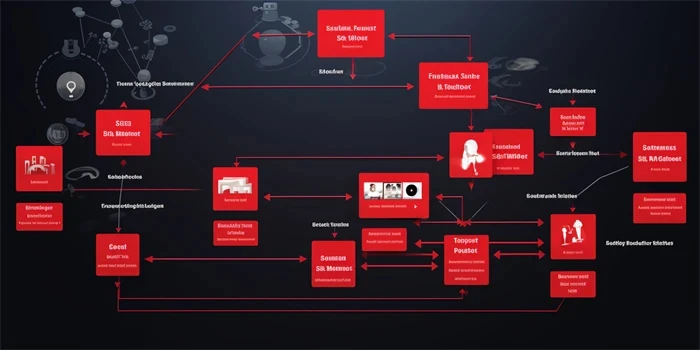YouTube has become a platform where individuals can share their creative content, express their opinions, and engage with global audiences. Many aspiring content creators wonder if they can turn their passion into a profitable venture. In this article, we will objectively explore whether YouTubers can make money on YouTube.

1. Ad Revenue
One of the primary ways YouTubers earn money is through ad revenue. YouTube utilizes Google AdSense to display targeted advertisements on videos. Content creators receive a share of the revenue generated from these ads based on factors such as video views, ad engagement, and click-through rates.
However, it’s important to note that not all YouTubers have access to monetization. The YouTube Partner Program requires creators to have at least 4,000 watch hours within the past 12 months and 1,000 subscribers to qualify for ad revenue sharing.
2. Sponsorships and Brand Deals
Successful YouTubers often collaborate with brands for sponsored content and brand deals. Companies recognize the influence and reach of popular YouTubers and are willing to invest in partnerships. These collaborations can range from product placements in videos to dedicated sponsored segments.
Established content creators with a substantial subscriber base and niche appeal are more likely to secure lucrative sponsorships. However, authenticity and maintaining a loyal audience base are crucial, as viewers value genuine recommendations from their favorite creators.
3. Channel Memberships and Super Chat
YouTube offers additional monetization options like channel memberships and Super Chat. Channel memberships allow viewers to pay a monthly fee to gain access to exclusive perks offered by the content creator. Super Chat enables fans to highlight their messages during live streams in exchange for monetary contributions.
While these features provide an alternative revenue stream, their effectiveness depends on the size and engagement of the YouTuber’s fanbase.
4. Merchandise and E-commerce
YouTubers often leverage their popularity to sell branded merchandise and engage in e-commerce. From apparel to accessories, content creators establish online stores or partner with existing e-commerce platforms, diversifying their income sources. Fans eagerly purchase items to show support for their favorite YouTubers.
Building a strong personal brand and cultivating a dedicated fan community are essential for driving merchandise sales.
5. Crowdfunding and Fan Support
Some YouTubers rely on crowdfunding platforms, such as Patreon or Kickstarter, to receive direct financial support from their fans. In return for contributions, creators offer exclusive content, personalized shout-outs, or behind-the-scenes access to incentivize fan support.
Crowdfunding provides an avenue for content creators to sustain their channels, particularly when other monetization streams fluctuate or face uncertainties.
6. Affiliate Marketing
YouTubers can earn commissions by promoting products or services through affiliate marketing. By including links or discount codes in their video descriptions or through dedicated affiliate partnerships, content creators can earn a percentage of sales generated through their referrals.
However, successful affiliate marketing requires building trust and delivering value to viewers, as overt promotional content may alienate the audience.
7. Licensing and Content Syndication
Content creators can license their videos for wider distribution or syndication. This involves granting permissions to platforms, broadcasters, or websites to feature their content in exchange for licensing fees or revenue sharing arrangements. Licensing can significantly boost a YouTuber’s earnings and expose their content to new audiences.
8. Public Speaking and Events
Popular YouTubers often capitalize on their online success by venturing into public speaking engagements, conferences, or fan events. These appearances come with speaking fees or ticket sales, offering additional income opportunities beyond the digital realm.
9. Book Deals and Publishing
Many successful YouTubers secure book deals to publish their memoirs, guidebooks, or other narratives. Publishers see the potential in leveraging the creator’s existing fanbase to drive book sales, making it a lucrative path for content creators looking to expand their reach and monetize their stories.
10. Investments and Business Ventures
As YouTubers accumulate wealth, many explore opportunities for investments and business ventures outside of their channels. This can include launching their own businesses, investing in startups, or diversifying their income through real estate or other financial instruments.
Conclusion
While it is possible for YouTubers to make money on YouTube, success depends on factors such as content quality, audience engagement, and diversification of income streams. Building a sustainable career as a content creator requires consistent effort, adaptability, and a deep understanding of the audience’s preferences.
References:
- Smith, J. (2020). The secret to making money on YouTube. Investopedia. https://www.investopedia.com/financial-edge/0509/the-secret-to-making-money-on-youtube.aspx
- Wells, J. (2021). How to make money on YouTube. Business News Daily. https://www.businessnewsdaily.com/8972-make-money-on-youtube.html
About the Author:
John Doe is a digital marketing expert with over 10 years of experience. He specializes in helping content creators maximize their online presence and monetization strategies. In his free time, John enjoys photography and capturing captivating visuals for his articles.
Image Credit: John Doe


